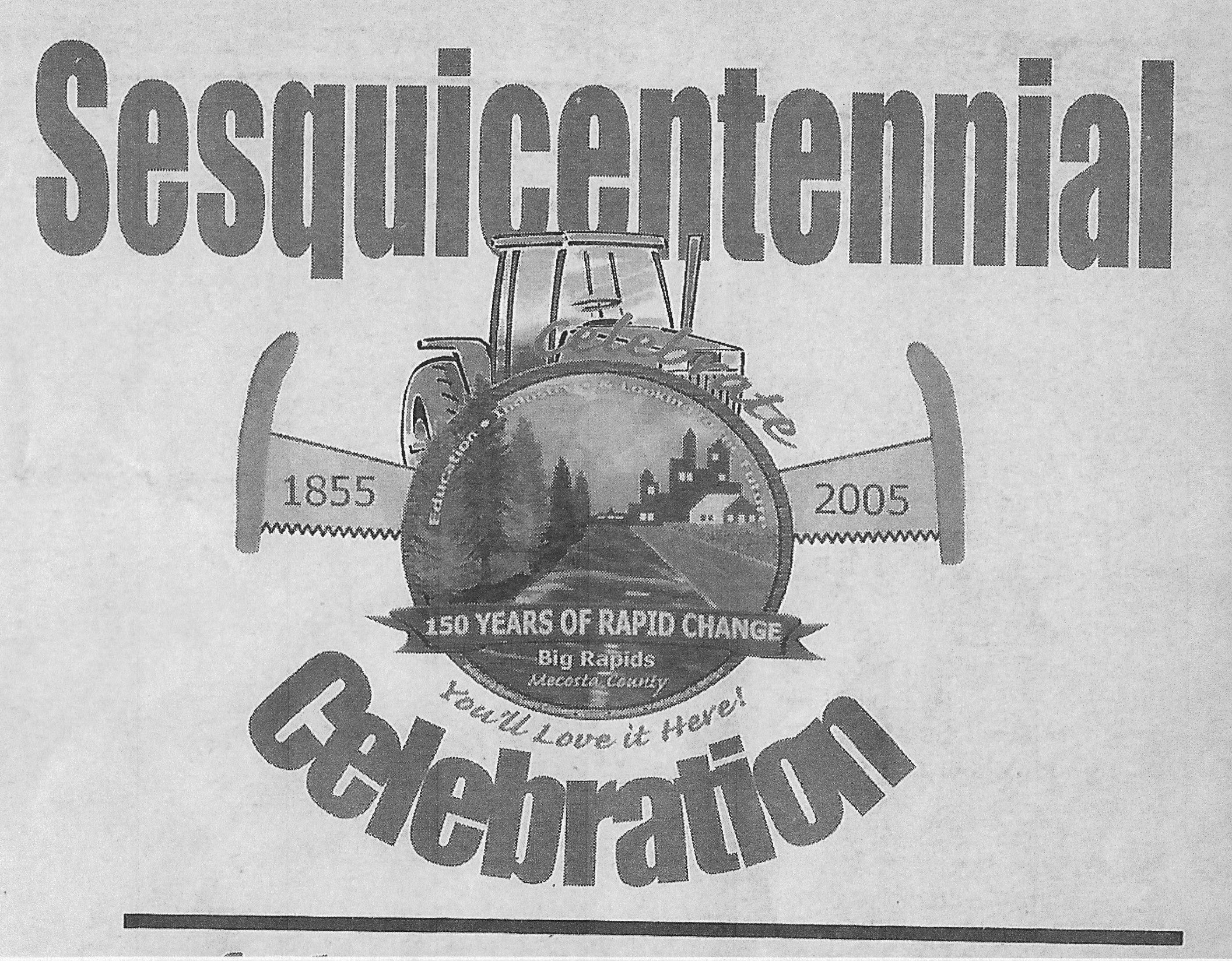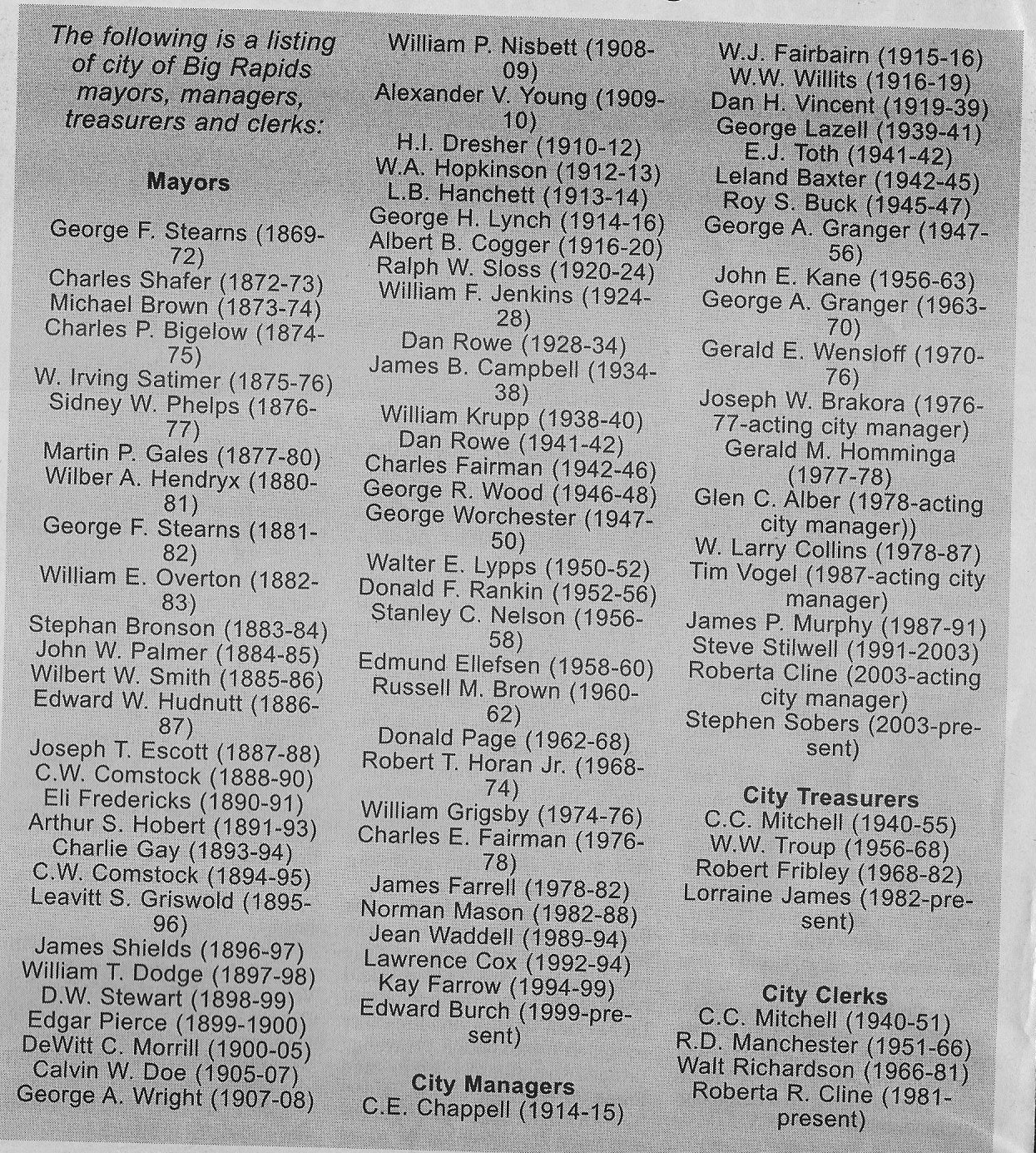
Part V - Government, a supplement to the Big Rapids Pioneer Newspaper. Used with permission.
BIG RAPIDS FIRST IN STATE WITH CITY MANAGER GOVERNMENT
By Leah Nixon - Pioneer Staff Writer

Fun Fact: In a vote of the people of Big Rapids' five wards, citizens approved this new style of government 411-223 Feb. 2, 1914.
A city commission/manager-style government was a radical move for a logging community in the first part of the 20th Century. But this didn't stop Big Rapids from forging ahead and being the first Michigan city to adopt this plan.
Outlined in a charter adopted Feb. 2, 1914, a city run by a commission and manager allows citizens the upper hand when deciding how Big Rapids is governed. The city's ability to create this new government was possible under the "Home Rile" provisions of Michigan's Constitution, according to historical reports.
Organizers oif the change in the charter's introduction highlighted their trendsetting ideas for a government like this. A few of its perks included non-partisan elections, decreaded costs, a centralized official responsible for the city's affairs and the ability of the people to hold recalls and referendums.
The new plan was organized as a checks and balances of sorts because it held commissioners and managers responsible for mismanagement or an inefficient administration - something these officials didn't previously face. Most importantly, Big Rapids residents now were able to take control of their officers.
A Charter Review Commission - consisting of Albert B. Cogger, Flyn W. Hathaway, A.W. Miles, J.C. Jensen. W. Abner Stillwell, W.H. Rowe, George N. Bevier and W.F. Nehmer - also determined the number of years each officer would serve.
Terms included two years of mayor, four years for commissioners and two years for justices of the peace and constables, according to historical reports. All other officers would be appointed by the commission. These types of positions include city attorney, assessor, clerk, treasurer and general manager.
The Charter Review Commission also stated the mayor and commissioners would serve without pay.
To help the election process flow smoothly enough to elect these officials, ward lines were abolished and five election precincts were created under the charter.
"It is believed that by abolishing the ward lines all officers will feel duty bound to tret the whole city alike and that it will do away with petty bickerings and jealousies which have been at times exusted between wards," the charter's introduction states.
Other areas the charter helped govern Big Rapids included a section highlighting taxation and what is allowable by officials for items like private sewer systems that drain intio public drains or sewers.
And, this new plan seemed to be a keeper as cities across the United States now are governed by city commissions and managers through an electoral process. This style of government may be 91 years old, but it continues to grow and evolve to meet the needs of citizens in every community.
Return to Mecosta sesquicentennial Page
Return to Home Page


